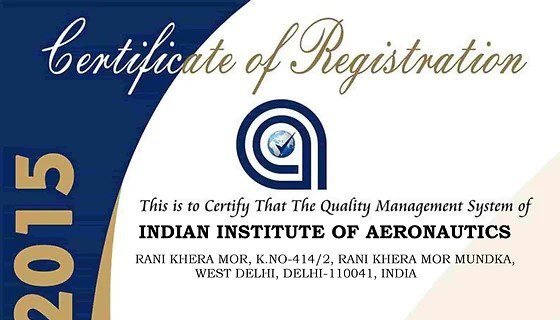Home » ISO Registration
ISO Registration in India: A Complete Guide

In today’s global business environment, quality assurance and customer trust are essential for long-term success. Whether you run a small manufacturing unit or a large IT company, obtaining an ISO registration in India can significantly enhance your credibility, efficiency, and marketability.
ISO registration in India acts as a quality benchmark that demonstrates your company’s commitment to international standards and continuous improvement. It not only helps attract new clients but also gives you an edge in government tenders, export opportunities, and customer satisfaction.
In this comprehensive guide, we’ll explore what ISO registration means, its types, process, benefits, and expert tips to help you get ISO certified with ease.
What Is ISO Registration in India?
ISO stands for the International Organization for Standardization, a global body headquartered in Geneva, Switzerland. It develops and publishes standards that ensure the quality, safety, and efficiency of products, services, and systems worldwide.
ISO registration in India means obtaining certification that your organization adheres to one or more ISO standards. The certification is issued by accredited certification bodies, not directly by ISO.
Once certified, your business receives an ISO certificate that serves as official proof of compliance with international quality standards.
Why ISO Certification Matters
In a competitive market, customers prefer businesses that consistently deliver quality, safety, and reliability. ISO certification helps demonstrate this commitment.
Key Reasons to Get ISO Certified:
Builds trust among clients and stakeholders.
Enhances internal efficiency and management control.
Increases eligibility for government and corporate tenders.
Facilitates easier international trade.
Boosts customer satisfaction and retention.
For example, an IT company certified under ISO 27001 (Information Security Management) can assure clients of data safety — a key factor in winning overseas contracts.
Types of ISO Certifications in India
There are over 22,000 ISO standards globally, each designed for a specific industry or purpose. However, only a few are commonly used for business certification in India.
Below are the most popular ISO certifications:
| ISO Standard | Purpose | Suitable For |
|---|---|---|
| ISO 9001:2015 | Quality Management System (QMS) | All industries |
| ISO 14001:2015 | Environmental Management | Manufacturing & construction |
| ISO 45001:2018 | Occupational Health & Safety | Industrial & service sectors |
| ISO 27001:2013 | Information Security | IT & software companies |
| ISO 22000:2018 | Food Safety Management | Food processing & hospitality |
| ISO 50001:2018 | Energy Management | Energy & utility industries |
| ISO 13485:2016 | Medical Devices Quality | Healthcare & medical equipment |
| ISO 20000-1:2018 | IT Service Management | IT service providers |
👉 Tip: Always choose the ISO standard relevant to your business activity to maximize its benefits.
Benefits of ISO Registration in India
Getting ISO registration in India brings multiple advantages, both tangible and intangible.
1. Improved Credibility
ISO certification validates that your company follows international best practices, making it easier to build trust with clients and investors.
2. Enhanced Customer Satisfaction
By adhering to standardized processes, you can consistently deliver high-quality products and services.
3. Market Expansion
ISO-certified companies are preferred in tenders and global trade, giving you an edge in competitive markets.
4. Operational Efficiency
ISO standards help reduce waste, minimize errors, and optimize workflows — leading to cost savings.
5. Legal and Regulatory Compliance
Following ISO guidelines ensures adherence to government and environmental regulations.
6. Brand Recognition
Displaying an ISO logo on your website or packaging immediately boosts your brand’s professional image.
7. Continuous Improvement
ISO certification emphasizes regular audits and performance reviews, fostering a culture of ongoing development.
Who Can Apply for ISO Registration?
Any organization that wants to improve its operations and credibility can apply for ISO certification, including:
Manufacturing industries
IT and software companies
Food and beverage units
Healthcare institutions
Educational institutions
Construction firms
NGOs and service providers
There are no restrictions on business size — even startups and small enterprises can get ISO registered.
Documents Required for ISO Registration
Before starting the certification process, keep the following documents ready:
Business Registration Proof – (PAN, GST, or incorporation certificate)
Business Address Proof – (electricity bill, rental agreement, etc.)
Scope of Business – Detailed description of business activities
Organization Chart – List of departments and hierarchy
Quality Policy & Objectives – Drafted by management
Operational Manuals & Procedures – Standard Operating Procedures (SOPs)
Invoice Copies or Product List
Step-by-Step Process for ISO Registration in India
The ISO certification process involves several stages of documentation, implementation, and audit. Below is the complete process explained simply:
Step 1: Choose the Right ISO Standard
Identify which ISO certification fits your business. For example:
ISO 9001 – Quality Management
ISO 27001 – Information Security
ISO 22000 – Food Safety
Step 2: Select an Accredited Certification Body
Choose an ISO certification body accredited by IAF (International Accreditation Forum) or NABCB (National Accreditation Board for Certification Bodies) in India.
Step 3: Submit Application
Submit an application with your business details, type of ISO standard, and operational scope.
Step 4: Document Review
The certification body reviews your documents to ensure compliance with the ISO standard.
Step 5: Pre-Audit (Optional)
Some agencies conduct a preliminary audit to identify non-conformities before the main audit.
Step 6: On-site Audit
The auditors visit your business premises to check whether your operations meet the ISO requirements.
Step 7: Certification Issuance
If compliant, your business is granted the ISO certificate with a validity of three years.
Step 8: Surveillance Audits
Periodic audits (usually once a year) ensure you maintain ISO compliance throughout the certification period.
Cost of ISO Registration in India
The cost of ISO certification depends on several factors:
Type of ISO standard (e.g., ISO 9001 vs. ISO 27001)
Size of the organization and employee strength
Number of operational locations
Scope of business activities
Accreditation body selected
Typically, ISO registration in India costs between ₹8,000 to ₹25,000 for small and medium enterprises.
👉 For an exact quote, you can consult experts like Invention Tax Solutions, who specialize in affordable and compliant ISO certifications.
Validity and Renewal of ISO Certificate
An ISO certificate is valid for three years. However, companies must undergo annual surveillance audits to maintain compliance.
After three years, you need to apply for renewal, which involves a re-evaluation of your systems and processes.
Real-Life Example: ISO Certification Success Story
Case Study:
A logistics company in Hyderabad, FastTrack Movers Pvt. Ltd., achieved ISO 9001:2015 certification in 2021.
Within a year:
They improved their delivery accuracy by 35%,
Reduced customer complaints by 50%, and
Won two major corporate contracts that required ISO compliance.
This demonstrates how ISO registration in India can directly impact business growth and client confidence.
Common Mistakes to Avoid During ISO Registration
Choosing the wrong certification body – Always select an IAF-accredited body.
Poor documentation – Incomplete quality manuals or policies can lead to rejection.
Not involving employees – ISO compliance requires team-wide participation.
Skipping internal audits – Regular internal audits prepare you for external inspections.
Neglecting surveillance audits – Missing annual audits can lead to certificate suspension.
Expert Tips for Smooth ISO Certification
✅ Conduct a gap analysis before starting the process.
✅ Train your employees on ISO standards and implementation.
✅ Maintain transparent documentation and records.
✅ Consult a professional ISO consultant for faster approval.
✅ Regularly review and update your quality management system.
Internal Linking Suggestions
To improve on-page SEO and user navigation, link this article with related topics such as:
Business Registration in India – For complete company setup assistance.
Trademark Registration in India – To protect your brand identity.
MSME Registration in India – For government benefits and support.
Pros and Cons of ISO Registration
| Pros | Cons |
|---|---|
| Enhances business reputation | Requires detailed documentation |
| Boosts tender eligibility | Annual audit expenses |
| Improves operational efficiency | Time-consuming for large organizations |
| Ensures customer satisfaction | Non-compliance may lead to revocation |
5 FAQs on ISO Registration in India
1. What is the validity of ISO certification?
ISO certification is valid for three years, subject to successful annual surveillance audits.
2. Can startups apply for ISO registration?
Yes, even startups and small enterprises can apply for ISO registration to enhance credibility.
3. How long does it take to get ISO certification in India?
The process usually takes 7–15 working days, depending on the size and complexity of your organization.
4. Is ISO registration mandatory in India?
No, it’s not mandatory. However, it is highly recommended for companies that aim to grow and compete globally.
5. How to verify an ISO certificate?
You can verify the authenticity of an ISO certificate using the IAF or certification body’s online database by entering the certificate number.
Conclusion: Strengthen Your Business with ISO Registration in India
In conclusion, ISO registration in India is not just a certificate — it’s a mark of quality, trust, and global competitiveness. Whether you are a startup or an established enterprise, ISO certification enhances your brand image, customer confidence, and business opportunities.
By following the right process and consulting professionals like Invention Tax Solutions, you can obtain ISO certification efficiently and start enjoying its long-term benefits.
📞 Ready to Get ISO Certified?
Contact Invention Tax Solutions today for hassle-free ISO registration in India.
Our experts handle documentation, audit coordination, and certification — ensuring full compliance at the best price.


